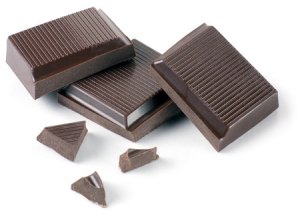“…gym called CrossFit Roots, one of more than 1,700 CrossFit gyms around the world. The program emphasizes intense, simple workouts in bare-bones gyms, where people perform squats, throw  heavy balls against walls, perform countless pull-ups and push-ups, and nearly (or do) collapse by the end of the workouts. The workouts first were popular with police academies, military units, martial artists and firefighters but have spread to fitness enthusiasts in general.”
heavy balls against walls, perform countless pull-ups and push-ups, and nearly (or do) collapse by the end of the workouts. The workouts first were popular with police academies, military units, martial artists and firefighters but have spread to fitness enthusiasts in general.”
Shortly after joining the gym, Graham, like a lot of CrossFitters, also began eating “paleo” (short for paleolithic), an approach to diet that in some regards mirrors CrossFit’s minimalist, no-nonsense training ethic: the diet eliminates dairy products, legumes, all grains, refined sugar and most salt. It is a diet, in other words, similar to what people ate during the Stone Age.
The paleo-CrossFit combo- platter has transformed Blakely’s life. Her husband, who followed her into CrossFit and the diet, is a changed man, too.
“I didn’t even know he was good-looking,” said Graham, with a wink, just before starting a session recently in CrossFit Roots’ tiny Boulder gym — really, more like a big garage — just off Pearl Street. “By week three, the weight was coming off so quickly, and I was getting so many compliments, I said, ‘OK. I’ll stick with this.’ ”
The book on paleo eats
CrossFit’s embrace of the paleo way, also called the “cave man” diet, also has thrilled Colorado State University professor Loren Cordain, though he isn’t swinging a club in celebration or grunting for joy. At least not yet.
But the scholar, who teaches in the university’s health and exercise science department, wrote the book “The Paleo Diet” in 2002, based on decades of research into the diets, and the health, of people who get their food from hunting and gathering. Among other things, Cordain found people who eat diets rich in meat, vegetables, fruits, nuts and seeds suffer fewer diseases and health problems than Western contemporaries.
The book didn’t do gangbusters in the marketplace. Cordain continued publishing articles and teaching. And then, nearly a decade later, the book started selling. Its ranking on Amazon.com began creeping up. Now, Cordain is a celebrity among CrossFitters. It all surprises Cordain, a tall, ruddy guy who has dedicated his life to scholarship.
The CrossFitters “have banded together, and the de-facto diet they have chosen is the paleo diet,” he said. “You can’t kick a gift horse in the mouth.”
Like most people involved with CrossFit, Nicole Gibson, one of the owners of CrossFit Roots, heard about the paleo diet at roughly the same time she discovered CrossFit. Now she runs the Boulder gym fulltime (she used to work as a city planner) and she eats paleo.
“In Boulder there is so much gimmicky health food,” she said. “We just wanted a way to give people a clear understanding of what real food was, and we thought this was the best way to get people thinking about food.”
http://www.denverpost.com/headlines/ci_14719513
 and Marek Brabec find (gated version here) that obesity rates actually began rising in the early 20th century, with significant upsurges after the two World Wars.
and Marek Brabec find (gated version here) that obesity rates actually began rising in the early 20th century, with significant upsurges after the two World Wars. 









Recent Comments